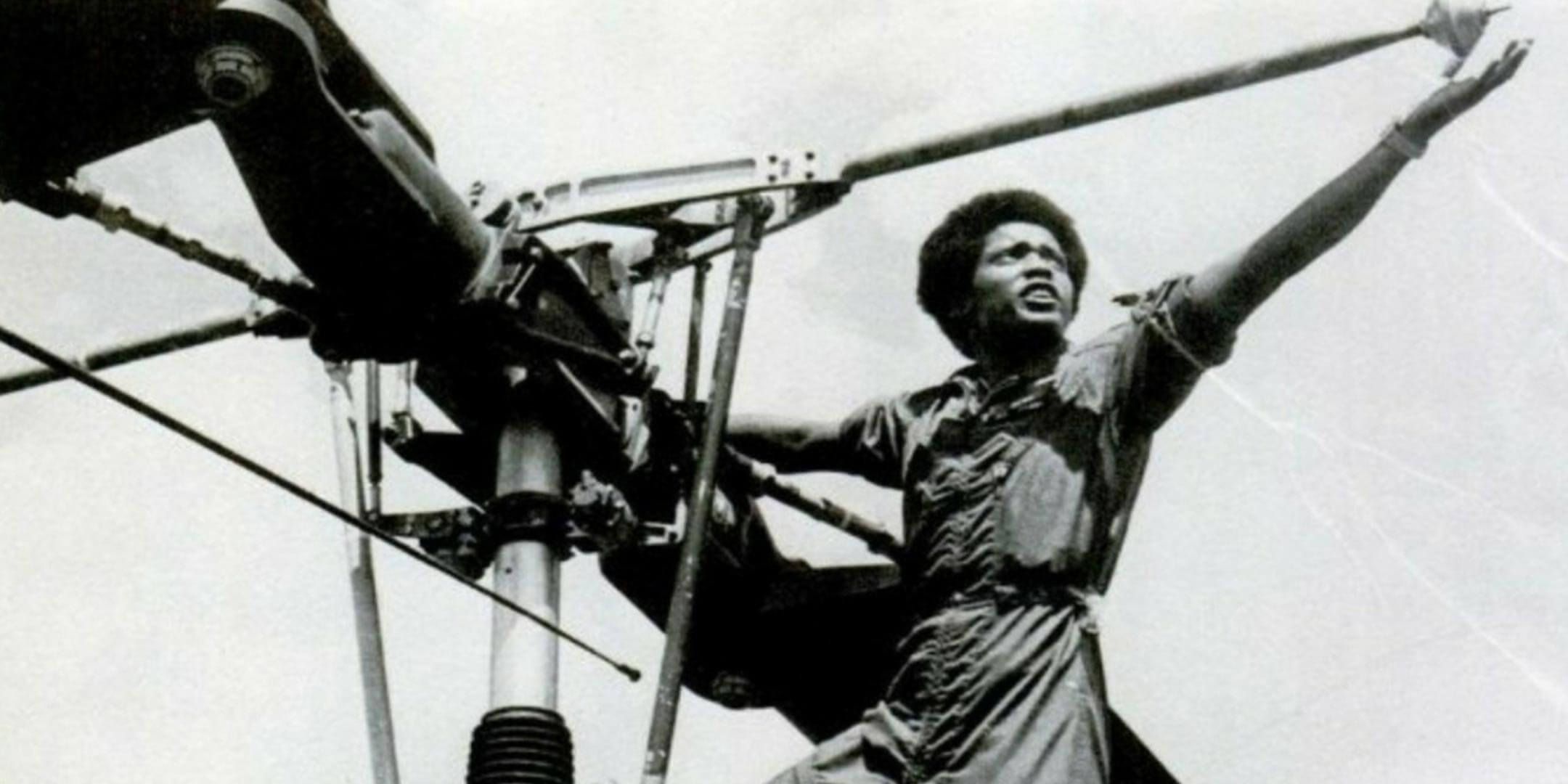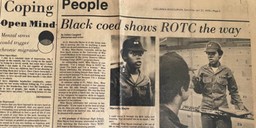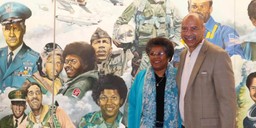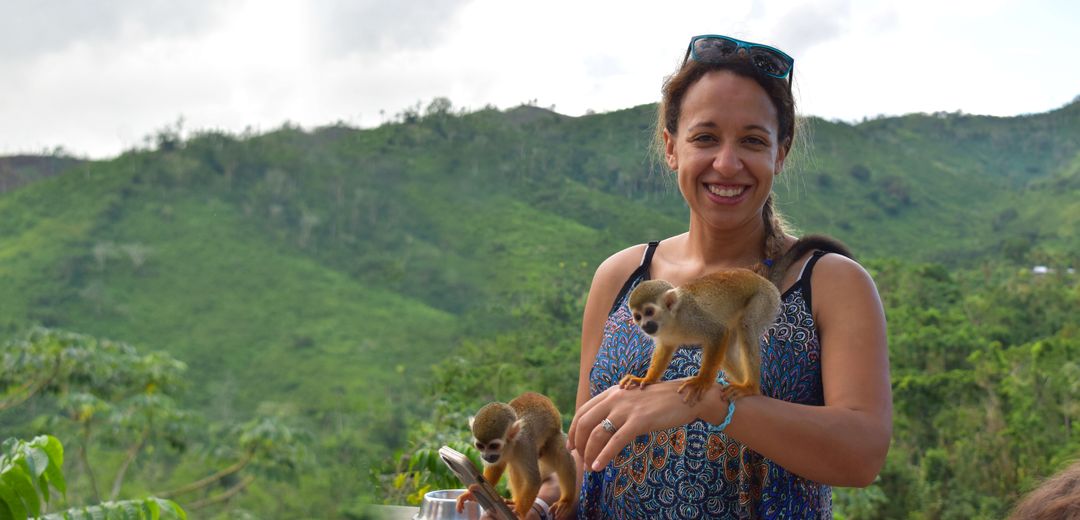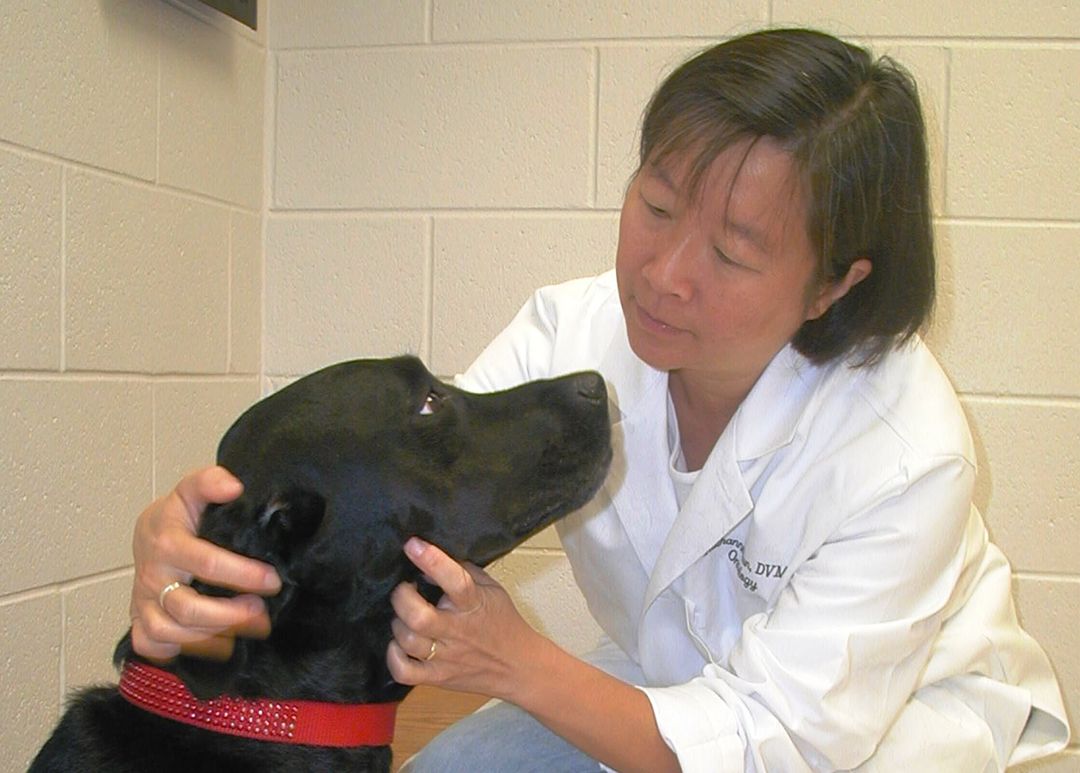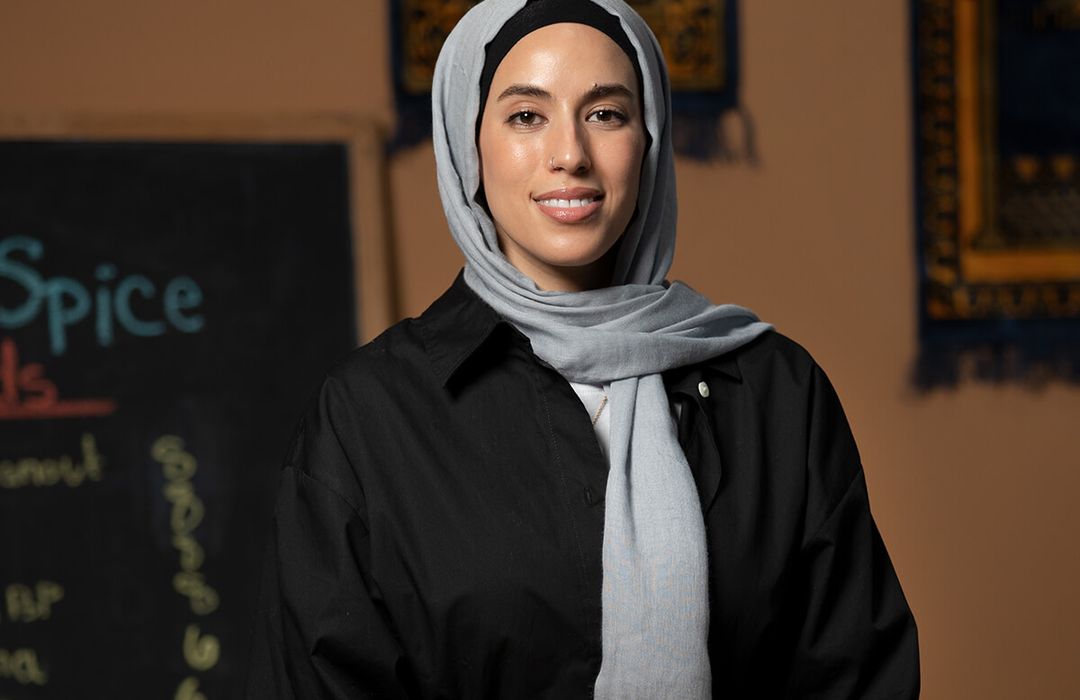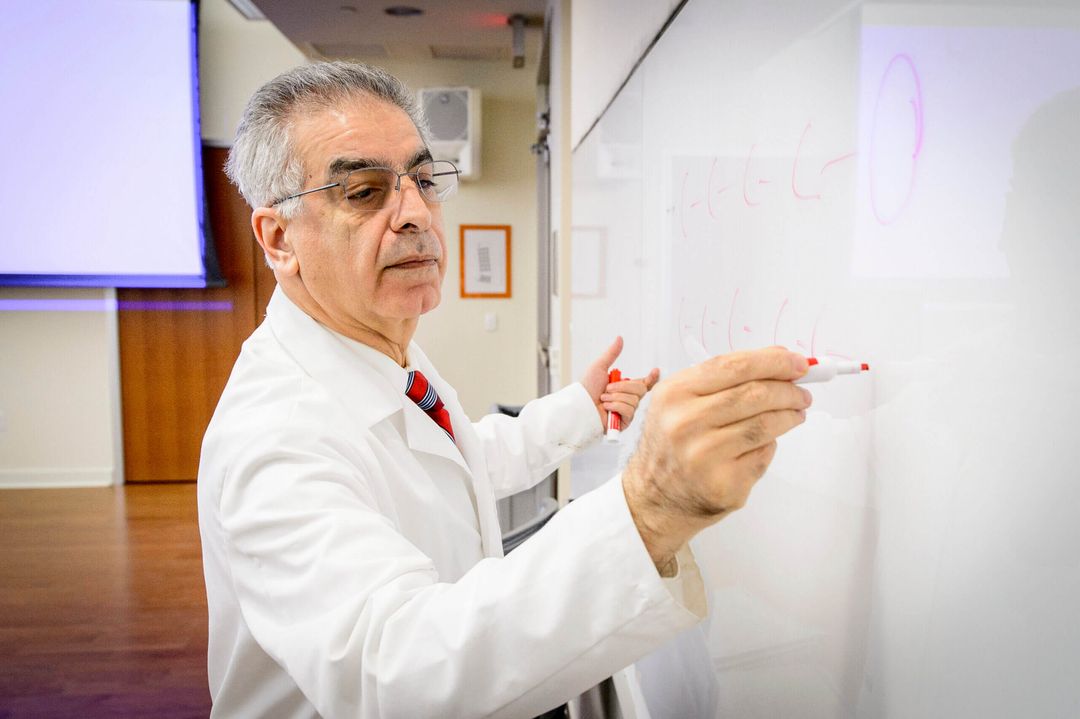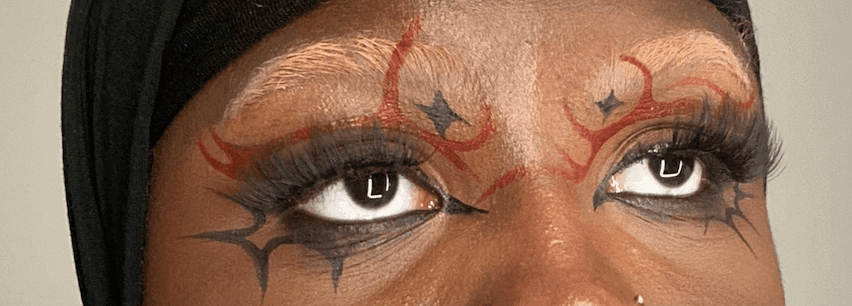Marcella Ng ’78
Marcy Hayes Ng calls herself a drug baby. “But a different type of drugs,” she clarifies. “I was drug to church every time they opened the doors — in and out, in and out.” Ng’s imagery might suggest that she went unwillingly, but she tells the story with warm laughter. The church across the street from Ng’s childhood home in northern Missouri was a center of joy and community. As a young girl, Ng helped her parents keep the church clean. She’d go with her mother to choir rehearsals, and her dad was a member of the deacon board. These daily visits to church while growing up led Ng on a path to continued service as an adult — service to God, to her family and community, and to the United States military.
The church didn’t only form Ng’s faith; it gave her a space to form a thick skin. In the church’s large lot, she liked to play football with her older male cousins, though they didn’t usually welcome her participation. In fact, the boys often played with the intent of making Ng cry so that she’d stop bothering them. It wasn’t uncommon for Ng to run the ball and end up at the bottom of a heavy pileup of bigger cousins. “But you don’t dare cry,” she’d tell herself. “If you do, it’s game over.”
“Game over” was not something Ng wanted to hear — ever. She spent her childhood roughhousing with cousins, climbing trees, and ignoring her father telling her to “Go on, girl, get out of here,” as he worked on engines. She remembers one of the church ministers saying that the sky was the limit: “And if you shoot for the stars and you don’t reach them, at least you’ll hit the moon by some chance.” Ng was a young Black girl growing up in the 1960s. She wasn’t going to let anyone shoot her down. Although she had some good friends in elementary and middle school, she encountered unkindness and hateful names in her town of Centralia. Later, she switched to a school in the neighboring university town with a more welcoming community. At Hickman High School in Columbia, Missouri, Ng loved going to the football games — not for sport, but to revel in the uniformity and regimen of her high school marching band. She didn’t know it at the time, but studying the band’s formations and precision would serve her well.
In her senior year of high school, Ng buckled down to focus on her grades and made the National Honor Society. She focused her college search on three schools: the University of Missouri, the University of Kansas, and the University of Wisconsin–Madison. Why those three? None of them required an application fee: “If they decided that I was not worthy of going to their college, I couldn’t stand the thought of paying for rejection.”
Happily, all three schools accepted Ng. She settled on the UW for two reasons. First, two of her high school teachers had done a training at Madison the summer before, and they told her how great the campus was. “If you go far away and it doesn’t work, you can always come back home,” they advised Ng. “But if you never leave, you may never break out of this cycle.”
The second thing that swayed Ng toward the UW was a daytime call from ROTC. Ng was impressed that an organization had called her during daytime hours when phone calls were charged at a higher rate. “All I could think — this naïve kid — ‘they must really want me,’ ” she recalls. “They’re calling during daytime hours. This is high dollar, man.”
Lady Hayes
After accepting her spot at the UW and in its ROTC program, Ng arrived on campus in the fall of 1974. In the spring semester, she began training in the ROTC program — and she excelled. Her love of marching band and group formations translated perfectly to the team drills and regimen of ROTC life. That and her competitive nature and experience with literally tackling whatever came her way made her a standout.
In 1977, Ng was selected for advanced camp in Fort Riley, Kansas, where she continued to impress. In a physical training test involving five different events, Ng earned 497 out of 500 possible points. But when she heard that some of the men at camp were complaining that the few women there were showing them up, Ng considered pulling back. Her master sergeant noticed her change in demeanor and learned what the men had said. “Lady Hayes,” he told Ng, “if you back off, I’m going to drop you like a hot potato. What makes you think that if you slack off and don’t give your best that they’re going to step up the ante?”
Ng didn’t wait to see if anyone else would step up their training. She decided to compete against herself instead and committed to doing her best — not to show off, as she explains, but to give glory to God. She took on leadership positions and seized opportunities that had only recently been opened to women. As one of only two women on the UW’s ROTC tri-service exhibition drill team, Ng had developed her command voice and leadership skills on campus. This previous experience elevated her at Fort Riley, and she was selected to command a company of cadets in formations for the Parent’s Day Parade. After ROTC advanced camp, Ng took Army Airborne training at Fort Benning, Georgia, to learn how to “jump out of perfectly good airplanes.”
One of her ROTC advanced camp instructors, Lt. Col. Bobby Pedigo, encouraged Ng to apply to flight school, another new opportunity for women in the military. She hadn’t any previous ambitions to fly, but Ng looked at it like every other adventure she’d already taken on, thinking, “Oh, well that sounds cool — something new to try.”
After her graduation from the UW in 1978, Ng was commissioned as a second lieutenant in the United States Army. She headed off to flight school at Fort Rucker, Alabama, in 1979. The first woman to graduate from flight school in the U.S. military, 2nd Lt. Sally Murphy, had reached that milestone only five years earlier. When Ng showed up for processing at camp, the mail clerk did a double take and exclaimed, “You’re the first one of you guys I ever seen come through here!” Ng didn’t believe him until a member of the base’s public affairs office approached her with a photographer and informed Ng that she really was the first Black woman to go through flight school.
Instructors at the base quickly stopped public coverage of Ng’s training to protect her privacy and prevent any animosity from her peers. Ng notes that, while there were a couple of classmates who still gave her sideways glances, she and the one other woman in her class were largely accepted. One classmate, Dennis Ng, became her husband; they’ve now been married for 42 years.
For Everybody Coming Through behind You
In November of 1979, Ng completed her flight training and qualified as a helicopter pilot, becoming the first Black female aviator in the U.S. military. Once it was a sure thing, the public affairs specialist was welcomed back to talk to Ng about her historic achievement. The barrier was never something Ng set out to break, but she’s certainly grateful for the opportunity and humble about her accomplishment. “It’s just where God allowed me to be.”
The newly married Ng next set out to a post in Germany with her Army aviator husband on the Army Married Officers Couple Program. Assigned to the 394th Transportation Battalion, she was the first Black officer, the first female officer, and the first female aviator within her unit in Germany. She had a personal first, too, albeit less joyous: it was there that she lost some of the rosiness that had been coloring her military career. Ng came up against a subgroup within her unit known as “No Blacks, No Broads,” and faced similar sentiments from a few of her superior officers. She lost her flight status in Germany and repeatedly fought to get back in the air, but to no avail.
While it hurt Ng deeply to have flying unfairly taken away from her, her friends kept her from despairing that her achievement was all for naught. “Marcy,” they explained, “going through those doors before us paved the way. You encountered the hard times. And the hurtful times. If it did nothing else, it caused it to be a little bit easier for everybody else who has to come through behind you.”
After moving from base to base in the United States and South Korea, Ng eventually became the commander of the 49th Transportation Battalion at Fort Hood, Texas. She retired from the military as a lieutenant colonel in 2000 after 22 years of military service and stayed in the area with Dennis and their three children.
Millilani: To Praise, Exalt
Of course, Ng hasn’t really stopped serving. As she was transitioning into civilian life and considering her next career path, Ng’s youngest daughter had an unplanned pregnancy. Ng was no stranger to such things — her biological parents had been in the same position when she was born, and her grandparents legally adopted her when she was eight years old. While looking at ways to help her daughter following the birth of her first grandchild, Ng discovered the local crisis pregnancy center and was inspired to get involved. She became a peer counselor and eventually served as the director and program director of Hope Pregnancy Centers, Inc., working to support women, men, and youth through difficult decisions about parenting and adoption.
Ever the thrill seeker, Ng and her husband took up motorcycling in the 1990s and are still active with the Christian Motorcyclists Association (CMA) — an organization aimed at ministering to bikers and spreading the faith. Ng explains that evangelizing doesn’t always require words — sometimes she’s just along for the ride, with the simple goal of showing where her joy comes from. “Sometimes you got to use words, but most times it’s just you, living your life, and people being able to see what makes you different.”
Ng’s latest adventure is taking place right on her own lawn in Nolanville, Texas. In 1998, she and her family had started putting together a large Quonset-style building on their property. It was a project aimed at family bonding more than anything else — they didn’t have a specific use planned for the building until Ng’s oldest daughter married. Ng decorated the building as a reception hall and saw that they could be putting their land to better use.
After some praying and reflection, the Ngs started Mililani Woods to provide an inexpensive venue for weddings, community meetings, and outdoor photography. The name reflects Dennis’s Hawaiian upbringing and the couple’s faith. Mililani comes from the Hawaiian translation of Psalm 100:4 in the Bible and is posted on the venue’s website: “E komo 'oukou iloko a kona 'i puka me ka Mililani!” — in English: “Enter into his gates with thanksgiving.” And for Ng, there’s every reason to be thankful. “All 11 acres — it belongs to him. We’re just stewards of the vineyard.”
